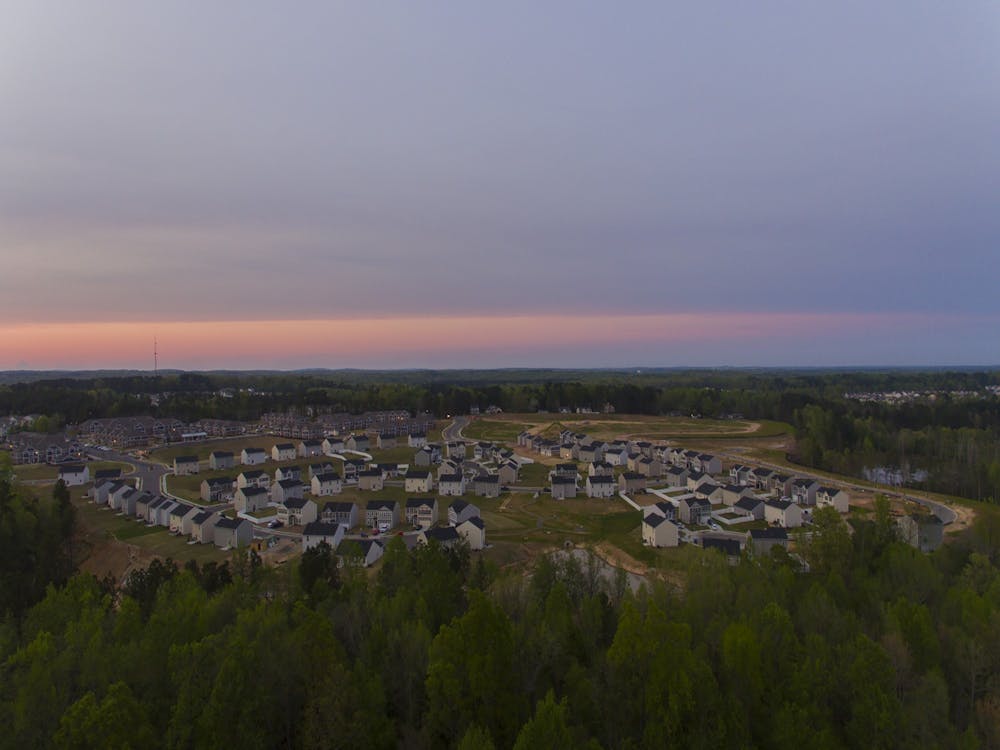For the first time in its 13-year history, the documentary studies course Small Town USA: Local Collaborations (DOCST 230S) underwent a complete curriculum change to adjust for remote learning.
The class, which has been taught by Professor Susie Post-Rust every spring since 2007, introduces students to narrative storytelling through documentary photography. Post-Rust worked as a documentary photographer for almost 20 years, 10 of which she worked primarily for the National Geographic Society.
Post-Rust intended to model her class after the Missouri Photo Workshop and Western Kentucky University’s Mountain Workshops, in which students visit a different town each year.
“I thought we would do that,” Post-Rust said. “But we went to Hillsborough the first year, and it was such a perfect match that we stayed. Instead of [visiting] a smattering of different towns, what we have is a long history in Hillsborough.”
Every year during the second week of class, Post-Rust and her students venture out to Hillsborough, approximately 20 minutes from Duke’s campus, for a tour of the town with mayor Tom Stevens. Then, students explore what interests them in the community and choose a subject for their semester-long photo documentary project.
While it might seem like the end of in-person classes would significantly disrupt students’ projects, the majority of the work occurs in the second half of the semester. Students spend the first half developing technical skills and an understanding of composition and emotion, so that by the end of the semester, they are well-prepared to engage with their chosen subject.
Ashley Coats, a senior in the class, said that she had been “just getting into the groove of things” with her project when Duke announced the transition to online learning. Immediately, she wondered how the class would continue.
“Every other one of my classes will be able to use Zoom, but the photography — how are we going to do this?” Coats recalled asking herself.
When Post-Rust heard that she would have to continue the class online, she adapted quickly. She asked several successful documentary photographers to give virtual presentations, hoping they would inspire students to continue working.
Post-Rust then created a blog that would form the new weekly assignments. She encouraged students to post original photos taken in quarantine alongside analysis of their respective situations. Over time, the blog posts became a creative outlet for students to be vulnerable and think critically about the challenges of life in a pandemic.
“We were processing the experience together,” Post-Rust said. “It is a photography class and not a therapy class, for sure, but everyone was documenting their own experiences.”
Post-Rust decided to assign a final project that combined students’ images from quarantine with voiceover narration about their personal experiences. While this meant students were telling different stories than originally intended, the principles of narrative storytelling taught in the class were still the same.
“The barrier of [the story] being [about] somebody else instead of yourself had melted away,” Post-Rust said. “So, in a way, the projects were more intimate than they would have been.”
Each project was unique, but many contained common themes like loneliness, anxiety or finding comfort in family.
“It was like a journal for me, and I’m not very good at journaling, so this [project] was an easier way for me to express my emotions and thoughts,” Coats said. “Professor Post-Rust encouraged me to use dark photos to express my really intense sadness and grief.”
Even after presenting their final projects, many of the students continued to document their experiences with the pandemic. Post-Rust holds weekly meetings to give these students informal critiques on their work. They like to call this new extracurricular crew “the photo club.”
To see the final projects, visit http://smalltown-usa.com/.
Get The Chronicle straight to your inbox
Signup for our weekly newsletter. Cancel at any time.

